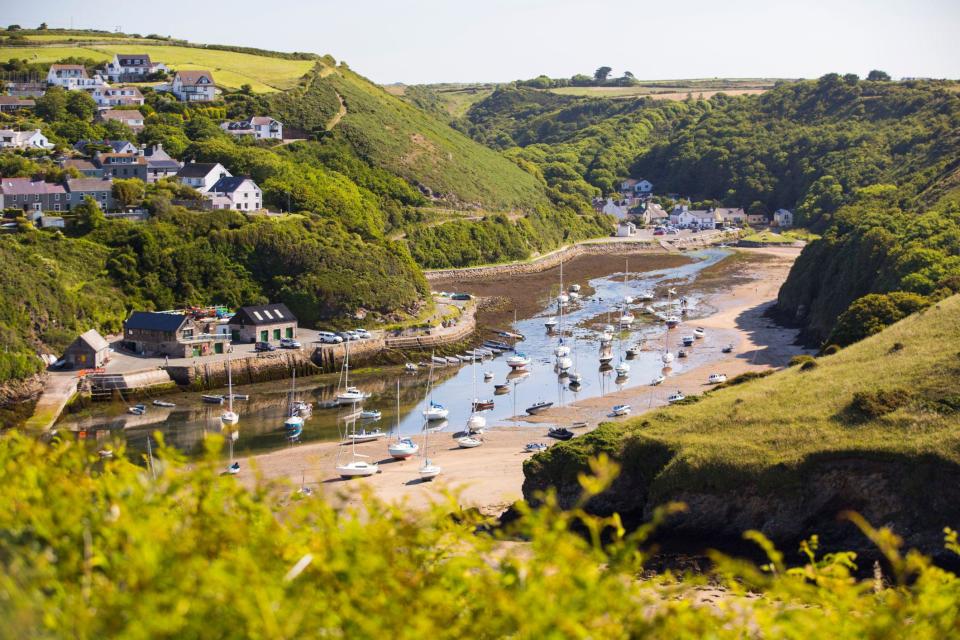Space radar site opponents challenge politicians

Campaigners against plans to build space radar dishes overlooking the UK's only coastal national park have challenged local general election candidates to say whether they support the plan or not.
The Ministry of Defence want to build 27 radar dishes at Cawdor Barracks in Brawdy, Pembrokeshire, to monitor satellites and other objects in space.
The dishes will be 66ft (20m) high and 49ft (15m) wide, and will be situated very close to the Pembrokeshire Coast National Park.
The Deep Space Advanced Radar Capability (DARC) programme is part of the trilateral AUKUS security partnership with the US and Australian governments.
At a meeting in Solva, Pembrokeshire, on Thursday, campaigners said the plans would hurt local businesses, local wildlife and the health of local residents.
Campaigner Jim Scott claimed that a 100 lorries a day could travel through Newgale to build the site and it was a "huge infrastructure project".
Five thousand people have signed an online petition opposing DARC in Pembrokeshire.
Roy Jones, founder of the Pembrokeshire Against the Radar movement which campaigned against previous plans for a radar installation at St Davids Airfield in 1990-1991 asked the meeting whether people wanted an "American military installation designed to dominate space" in a "sacred place".
Keith Griffiths, the founder of three local luxury hotels, was also opposed to DARC, said Emma Bowen, a general manager at his Retreats Group.
Ms Bowen questioned whether visitors would choose to visit an area which had 27 radar structures.
The meeting also heard concerns from health experts.
Professor Paul Heroux claimed that "health impacts were inevitable" from the non-ionising radiation produced by radar.
Michael Peleg, who has studied the impact of the "Iron Dome" radar system in Israel, said in a pre-recorded video played at the meeting there were increased cases of haemolymphatic cancers among 46 IDF soldiers who had served near the radar system.

He claimed that strong radio frequency radiation could modify cells and cause cancer.
There were also concerns over wildlife, with Michael Davies from the Wildlife Trust of south and west Wales, saying he feared a radar installation could have a detrimental impact on two important species of bird in Pembrokeshire; the Manx Shearwater and the Chough.
He said that lights at Cawdor Barracks could "confuse" migrating birds and birds could also be affected at Newgale beach.
There around 350,000 pairs of Manx Shearwaters on Skomer alone.
Mr Davies told the meeting: "We must ensure this does not progress."
Pembrokeshire Council will consider the planning application and an environmental impact assessment will be required as part of the planning process.


